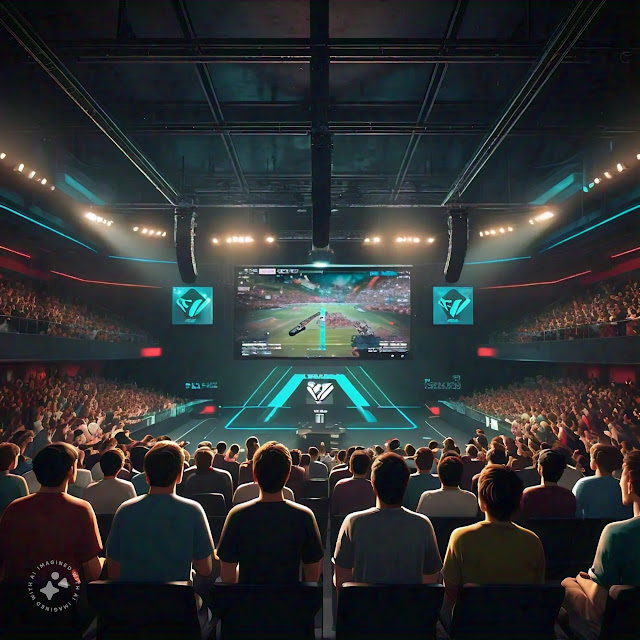From Gokuldham to Central Perk: Why Indian Millennials Are Stuck in a Glorious TV Time Warp
Let's play a game. I'll start a line, you finish it: "Jungle jungle baat chali hai..."
If you immediately sang "…pata chala hai!" in your head, congratulations, you're a certified Indian millennial. Your brain is a beautiful, chaotic archive of memories that involve a grainy Doordarshan signal, a specific Sunday morning routine, and a deep, unshakable love for TV shows that are now old enough to have a mid-life crisis.
 |
| Chaddi pehen ke phool khila hai! |
Let’s be real. After a day of adulting—which mostly seems to involve muting yourself on Zoom calls and wondering why your back hurts—what do you really want to watch? That new gritty sci-fi epic that requires a flowchart to understand?
Nah. You’re firing up an old friend. Maybe it’s Chandler Bing, maybe it’s Jethalal Gada, or maybe it’s the theme song of DuckTales (a-woo-oo!).
In a world drowning in content, we’re still desperately clinging to our childhood life rafts. The question is, why?
Our Binge-Watching Brains Were
Forged in the Fires of Doordarshan
Before Netflix and its judgy "Are you still watching?" prompts, there was the OG appointment viewing. Our addiction was born on those hallowed Sunday mornings, when the entire nation was collectively glued to the TV for The Jungle Book, followed by the high-flying adventures of Baloo in TaleSpin and Uncle Scrooge diving into his money bin.
Disney's Block Party!!!!
And the summers? They were spent watching Funtime, waiting for the sheer
awesomeness that was Giant Robot (or
as we all called it, "C’mon, Giant Robot!"). The stakes felt so high!
Would he defeat the alien monster? The anticipation was real, and it was a
collective experience shared with every kid on the block.
 |
| Johnny Sokko and His Flying Robot. |
That’s the foundation. Our comfort-watching habit isn’t new; it’s a muscle we’ve been training since childhood.
The TV Equivalent of a Phantom
Sweet Cigarette
Today’s shows are brilliant, but man, they are work. You need to track complex plotlines, remember who betrayed whom, and analyze subtext like you’re writing a thesis.
Our comfort shows, on the other hand, are the TV equivalent of mom's daal chawal or finding a Phantom sweet cigarette in an old drawer. They demand absolutely nothing.
We know Kevin Arnold is pining for Winnie Cooper in The Wonder Years. We know Will Smith is about to get tossed out of the mansion by a furious Uncle Phil in The Fresh Prince of Bel-Air. We know the chaotic family in Dekh Bhai Dekh or Hum Paanch is about to turn a simple problem into a comedy of errors. It’s not boring; it’s a warm, fuzzy blanket of predictability.
 |
| A Blast from the Past! |
"A Show About
Nothing" is Actually Everything
Then you have the Mount Rushmore of comfort TV, featuring shows like Friends and Seinfeld. While Friends gave us the "found family" we all craved—a tribe of our own to navigate life with—Seinfeld gave us something even more profound: the glorious relief of "nothing."
A show about nothing!
Seinfeld was famously "a show about nothing." Four self-absorbed
people complaining about puffy shirts, close-talkers, and double-dipping. And
that’s its genius! In a world that demands we have a strong opinion on
everything, a show about the mundane everyday experiences of life feels like a revolutionary
act of chilling out. When everything else feels so heavy, a show about
absolutely nothing is actually everything
we need.
The Undisputed King of the
Family Dinner: Gokuldham Society
Of course, no discussion about Indian comfort TV is complete without hailing the one true king: Taarak Mehta Ka Ooltah Chashmah. The old episodes, specifically.
Problems toh hain sabke pass, bas nazariye ki hai baat!
TMKOC is the idealized version of the "society" life we all know—a mini-India in one building where every festival is celebrated with gusto and Daya Ben's "Hey Maa, Mataji!" is a national cry for help. It's the one show that everyone, from your 7-year-old son to your 90-year-old nani, can watch together during dinner without anyone getting bored or offended. It’s low-stakes, high-reward, family-friendly perfection.
So yes, maybe we’re stuck in a time warp. But these shows are more than just moving pictures. They’re a portal to a time when life was simpler, when our biggest stress was waiting a whole week for the next episode, and when a giant robot fighting a space monster was the most epic thing we’d ever seen.






Comments
Post a Comment